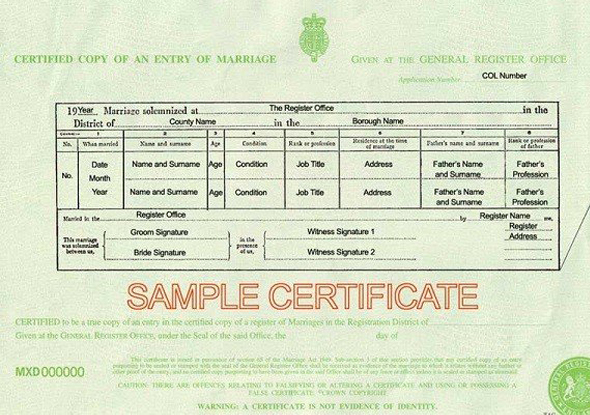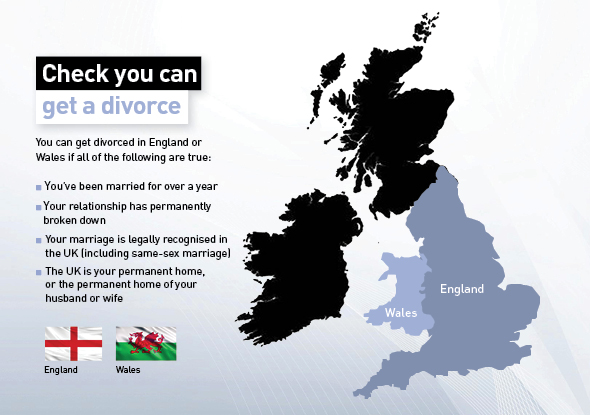A Complete Guide To Online Divorce

- This blog contains affiliate links, which we may receive a commission for purchases. The decision is yours, whether or not you decide to buy.
To file for a divorce/dissolution of civil partnership online the stages are as follows.
- You pay the court fee and issue the petition (D8)
- Your spouse/civil partner acknowledges
- You apply for Decree Nisi
- You apply for Decree Absolute (usually after finances have been resolved – see below)
The online divorce system was introduced to make the divorce process more accessible and efficient.
Not only is the process faster when initiated online – with online petitions issued far quicker in comparison to paper petitions – but we have seen that fewer applications are being rejected for mistakes such as missed tick boxes or missing information.
This is thanks to the online process guiding you through the form, step-by-step.
How do I apply for a divorce online?
You can apply for a divorce online via the Gov.uk website at www.gov.uk/apply-for-divorce. You will need to register and create an account in order to sign in and commence the application.
.jpg)
The document (D8) that starts the divorce is called the ‘petition’. This is what will be created through your online application.
Even if you and your spouse/civil partner both agree that you should divorce, one of you will need to petition against the other. If you are the individual applying then you are the ‘petitioner’.
Your spouse/civil partner is the ‘respondent’, and will receive the petition and will need to respond to it, hopefully confirming agreement to the divorce (see below). In order to petition for divorce, you must have first been married/in a civil partnership for at least a year.
If you have not yet been married/in a civil partnership for a year, you will need to wait before commencing the divorce process.
How much does an online divorce cost exactly?
Upon submitting your petition, if you are doing this yourself, you will be required to pay the relevant court fee, which is currently £550.
Depending on your financial circumstances, the court fee could be reduced. To see if you are eligible for a reduction, you will need to complete a ‘Help With Fees’ form (Form EX160).m Further information is available at the GOV.UK website here.
What information do I need for an online divorce?
Before commencing the online process, you will need to have the following to hand:

- "Your original marriage certificate or a certified copy (or translation, if it is in a language other than English) - it is important that the certificate is uploaded in a legible format, as failing to do so can significantly delay the issuing of the petitio
- Your spouse/civil partner’s full name and address.
- Proof of any name change, if this has changed since the marriage – for example, your marriage certificate or a deed poll.
Don’t worry if you find that you have started the application and do not have all of the information you need – you are able to save your progress as a draft and continue where you left off.
How do I complete the online divorce petition?
The way to do this is by following the online application step by step which will guide you through completion of the petition. Below are a few of the key sections to be aware of, and points to note.
Jurisdiction
A divorce/dissolution can only be commenced in England and Wales if the court has jurisdiction to consider the proceedings.

The online application will set out a list of legal connections where the court has such jurisdiction. You will need to tick all of the legal connections that apply to you and your spouse.
The most common connection is that you and your spouse are ‘habitually resident’ in England and Wales. This means that you both live or spend most of your time in England and Wales.
If you are unsure whether the court has jurisdiction, or consider that your spouse/civil partner may challenge the jurisdiction because they wish to divorce in another country, then it is advisable to seek immediate legal advice.
A solicitor can advise on your position and the associated implications, and ensure that you petition in the most appropriate country.
Grounds for divorce
The online application will ask you for the reason for your divorce. There is only one ground under which you can petition for divorce/dissolution. This is the ‘irretrievable breakdown of the marriage/partnership’.
Within this, there are five facts which you can rely upon to establish that your relationship has irretrievably broken down. The online process will prompt you to choose one of these facts as your reason for seeking a divorce.
(1).jpg)
These facts are:
1. Adultery
Your spouse has committed adultery with a member of the opposite sex and, as a result, you now find it intolerable to live with them.
Currently, you cannot rely on this fact if your spouse has committed adultery with someone of the same sex.
However, this can be relied upon under the next fact, below, to demonstrate behaviour that you cannot reasonably be expected to live with.
If you rely on the fact of adultery, the petition will then ask whether you want to name the person that your spouse has committed adultery with.
They are known as a ‘co-respondent’. It is common practice not to name this individual. Naming them can not only add additional acrimony, but it also produces practical issues of additionally serving the petition on the co-respondent, and increases the potential for both delay and legal costs.
2. Behaviour
Your spouse/civil partner has behaved in such a way that you cannot reasonably be expected to live with them.

This is a commonly used fact and, where applicable, can include behaviour such as:
- The respondent does not show you any love and affection;
- The respondent does not wish to socialise with you;
- The respondent is critical of you;
- The respondent prioritises work or hobbies over you;
- The respondent has left the family home causing you to feel rejected.
It is sensible to include about five examples and to avoid overly inflammatory examples here, due to the risk that your spouse could then choose to defend the petition, leading to delay and further costs.
If possible, you should seek to speak with your spouse before commencing the divorce process.
You can even agree upon the wording of the behaviour examples that you wish to rely upon, if this is appropriate in your situation.
If you are unsure how to approach this section, a solicitor can assist, ensuring that the particulars of behaviour are suitably drafted to reduce hostility between spouses.
3. Desertion
Your spouse/civil partner has ‘deserted’ you, i.e. left you, for at least two continuous years immediately before you file the petition.
When considering whether desertion has been continuous, you can still rely upon this fact if you have cohabited with your spouse/civil partner for a period or periods that do not exceed a total of six months.
However, any period of cohabitation cannot be counted as part of the period of desertion, and so the two years will not include this time.
It is rare to rely on this fact: where the other person agrees to a divorce following two years’ apart, it is more common to petition on the basis of the fourth fact below.
4. Two years’ separation with consent
You and your spouse/civil partner have been separated for a continuous period of at least two years, and you both agree to the divorce/dissolution.
5. Five years’ separation
You and your spouse/civil partner have been separated for a continuous period of at least five years. Unlike the above fact, there is no need for your spouse/civil partner to agree to the divorce.
Where you rely upon one of the separation facts, it is important to note that in some cases a couple can be treated as ‘separated’ even where living under the same roof.
To prove this, you must show that you occupy ‘separate households’ and are, effectively, living apart.
If you find yourself in this situation, it is advisable to seek legal advice on your position, and if you can rely upon one of the other facts to show that your marriage has irretrievably broken down, then it would be sensible to do so.
Financial orders
When prompted on whether you would like to apply for a financial order for yourself, as the petitioner, you should tick that you would like to do so. You should tick this box whether or not you have already agreed finances.
If you have agreed a financial settlement then it is still sensible to tick this box so that the court can approve the settlement in a consent order in due course.
If you have not agreed finances then ticking this box enables you to bring a claim in future, potentially even after you have remarried.
If there are children of the family, you should also tick that you wish to apply for a financial order for children.
What happens when my online divorce application is completed?
Once you have filled out all of the relevant information correctly, it will be processed, sealed and a copy will be sent to both you and your spouse/civil partner.
Your spouse/civil partner, as the respondent, will receive an acknowledgement of service form to complete and return, confirming that they have received the petition.
Here, they will answer a number of questions, for instance, whether they agree with the information included within the petition.
The respondent has 7 working days to file their acknowledgement of service, and to state whether or not they intend to defend the divorce.
If the respondent indicates that they do intend to defend the petition, they have a further 21 days to file their ‘answer’ (i.e. their defence).
If the respondent does not accept that the relationship has broken down, or disagrees with the reasons you have given in your petition, then they may seek to file their own cross-petition. This demonstrates the importance of speaking with your spouse beforehand, where possible.
What is a Decree Nisi?
As the petitioner, assuming the petition is undefended, you can apply to the court using the online system for it to consider the making of a ‘decree nisi’.
The decree nisi confirms that the court agrees that your marriage/civil partnership has irretrievably broken down.
You can make this application any time after the time for filing the acknowledgement of service has expired, or, if your spouse/civil partner has indicated that they intend to defend the case, but not filed an answer, any time after the time limit for filing for the answer has expired
At this time, you will also need to file a statement confirming that what you said in your divorce petition is true. The online system will prompt you to do this.
What is a Decree Absolute?
A ‘Decree absolute’ is the final stage of the divorce process, and brings about the end of your marriage/civil partnership. You can apply for a decree absolute six weeks and one day after decree nisi is granted.
You will receive an email on how to apply online. Once the court has approved your decree absolute, they will send a copy to both you and the respondent.
There is no requirement to apply for decree absolute as soon as the six weeks and one day has elapsed.
In fact, in some cases, it is advisable to delay applying for the decree absolute until financial matters have been resolved (e.g. if the family home is in your spouse’s sole name or either of you have pensions with spousal benefits and if you are considering applying without resolving the financial issues, first it would be sensible to take legal advice).
Are there financial arrangements to consider with an Online divorce?
Yes. It is advisable to resolve financial matters, before you apply for your decree absolute so that these are not left outstanding. This is because a divorce or dissolution does not end your spouse’s ability to make a financial claim against you.
There is no time limit for them to do so (although if a party has remarried without first making a claim then he or she will be unable to do so), and so your spouse could potentially unexpectedly bring a claim against you at any point in the future.
It is therefore advisable that financial arrangements are dealt with during your divorce, and finalised in a binding court order.
If you have reached an agreement then a solicitor can assist in drawing up an order by consent, containing the terms of the agreement that you have reached with your spouse.
This will then be filed with the court, and the terms will be enforceable. Just like the divorce petition, orders can also now be filed online. This has significantly improved delays, with some orders being approved in as little as a week.
Beyond instructing a solicitor to draw up the court order, it is strongly advised to seek legal advice before this point on the financial matters themselves.
Financial matters in a divorce may be complicated, particularly where pensions are involved, and you might find that you are not aware of all the matrimonial assets, and so could potentially miss out on a share of a valuable asset. You should seek legal advice on the finances.
Top tips

- There are several ways of resolving issues related to finances and children amicably, including using mediation, the collaborative law process and obtaining an early neutral evaluation. If both of you wish to cooperate and enter into an agreement that is fair it should be possible to do so without incurring unnecessary cost, thereby preserving your family’s assets.
- Speaking with your spouse before applying for a divorce can help reduce animosity, and ultimately delays. Doing so gives you both the opportunity to agree on the information contained in the petition. Working collaboratively from the outset can also set the tone for the ancillary issues such as the arrangements for the children and finances, reducing the emotional strain on both you and your spouse.
- The online divorce process allows you to efficiently petition for divorce, in a user-friendly way. However, it is not a substitute for legal advice. It is recommended that you obtain legal advice with regard to finances, including having a solicitor draw up any financial agreement so that it becomes a binding order.
Where appropriate, advice should also be sought on issues of jurisdiction before petitioning for divorce.
To conclude, it is straightforward to petition online and couples are increasingly choosing to do so where they want to dissolve their marriage/civil partnership without unnecessary cost and animosity.
Where there are children, this hopefully enables positive co-parenting going forward, and when it comes to finances it is worth having input from a mediator or lawyer who is committed to resolving things as amicably as possible.
Written by Kirstie Law Solicitor, Collaborative Lawyer and Mediator at Thomson Snell & Passmore. www.ts-p.co.uk
PHOTO CREDITS: FREEPIK GPOINTSTUDIO FRANCISCO MORENO
You may also like
Books
Buy now from Amazon
- The Co-Parenting Handbook
- Fair Share: How the divorce courts in England & Wales deal with your money
- The Book You Wish Your Parents Had Read THE #1 SUNDAY TIMES BESTSELLER
Podcast
This personal finance podcast is for women, including female entrepreneurs to learn personal finance, money mindset & practical money management tips to be financially confident. To get in control of money, to budget, gain financial confidence, learn how to invest, save money & manage money mindset and behaviours. Hosted by a multi- award winning qualified financial planner and financial coach.
- Listen to the In Her Financial Shoes Podcast
- Catherine Morgan full profile
- More professional podcasts
Articles
- 8 Ways You Can Stay Financially Fit After Your Divorce
- Five Things To Let Go Of After Divorce
- Buying A Home Post Divorce Part 1
Videos
Practical advice and tips from professionals on what to do with issues and challenges around divorce from parenting to finance.
Events
Practical tips & advice designed to help people going through divorce, whether online or in person.
Useful links
Here's a selection of organistaioins from parenting to finance to help you with your divorce.
Finance professionals
Related Posts
-

Most Common Age for Divorce in the UK and the Key Reasons Behind It
-

Reclaiming Joy After Divorce: Small Daily Rituals That Make a Big Difference
-

Navigating Social Media During Separation: Essential Dos and Don’ts in the UK
-

Is Silence Destroying Your Marriage? How Poor Communication Leads to Divorce (And What You Can Do About It)
-

When Is the Best Time to Start Family Mediation in the UK? | Guide for Separating Couples



.jpg)





.jpg)

